
paper collages


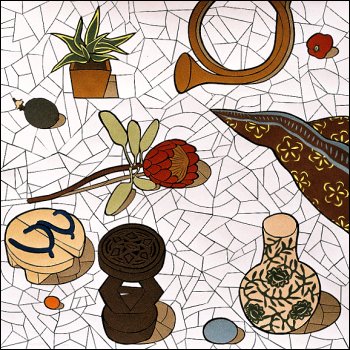
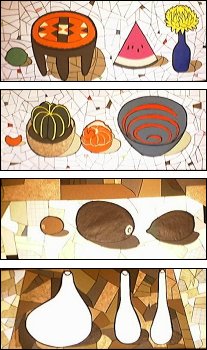
The brown streets have flown into the wind melting into lazy blue noon shadows and half-dreamt dreams. Sudden tunes linger blue-eyed, smells of worn-out dust balconies and confused strangers on new lanes, looking for the forest of strangeness to stay longer, for all paths to be unknown and full of warm mysteries of flowers. Each universe unfurls and causes forgetting. Lost in the newness of skies and afternoons.
Aishwarya Iyer -
Strange Days
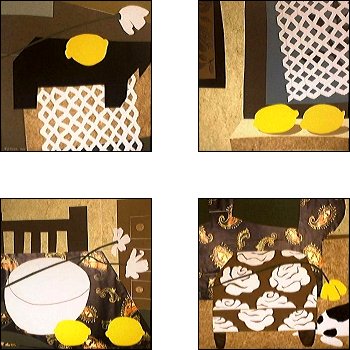

The moving finger writes; and having writ
Moves on. Nor all your piety and wit
Can all it back to cancel half a line
Nor all your tears wash out a word of it Omar Khayyam
Moves on. Nor all your piety and wit
Can all it back to cancel half a line
Nor all your tears wash out a word of it Omar Khayyam

ceramic portraits with acrylic paint finish



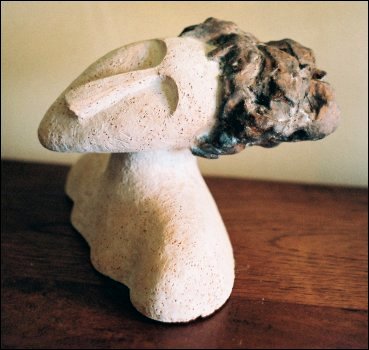

What he meant by 'awareness' was perhaps a sense of the as yet unimagined wholeness of life; a recognition that one could live freely only on the frontiers of one's being where the known was still contained in the infinite unknown, and where there could be a continual crossing and re-crossing of tentative borders, like lone hunters returning from perilous sojourns in great forests. It was, to put it pictorially, he said, a way of living not only by moonlight or sunlight, but also by starlight.
Laurens van der Post -
The Seed and the Sower


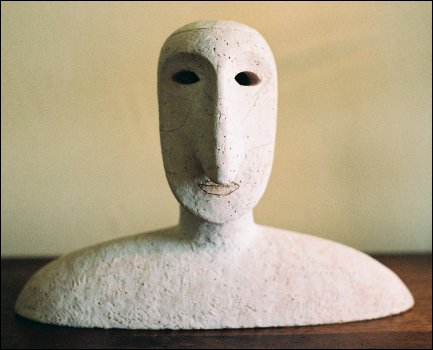
artist's pencil on paper


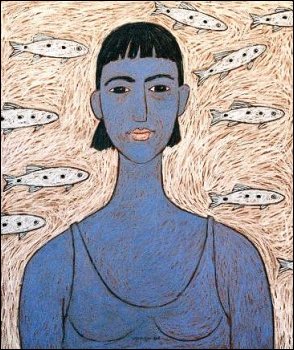
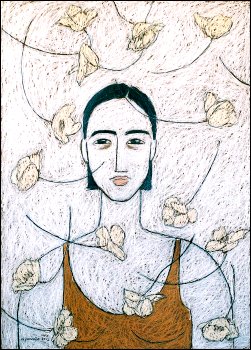
In the sky there is nobody asleep. Nobody, nobody.
Nobody is asleep.
The creatures of the moon sniff and prowl about their cabins.
The living iguanas will come and bite the men who do not dream,
and the man who rushes out with his spirit broken will meet on the street corner
the unbelievable alligator quiet beneath the tender protest of the stars.
Nobody is asleep.
The creatures of the moon sniff and prowl about their cabins.
The living iguanas will come and bite the men who do not dream,
and the man who rushes out with his spirit broken will meet on the street corner
the unbelievable alligator quiet beneath the tender protest of the stars.
Federico García Lorca, from City that does not sleep
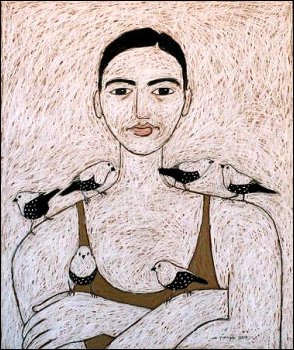

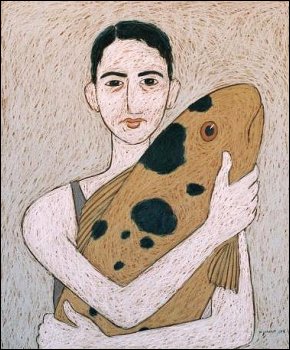
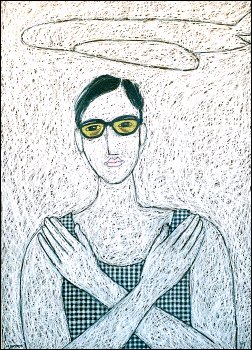

Deep down, everything's an accident
From the film The Secret life of Words
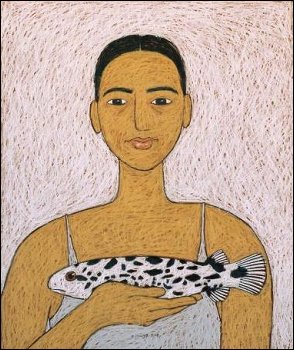
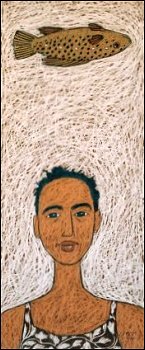
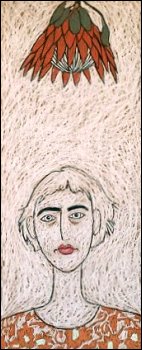
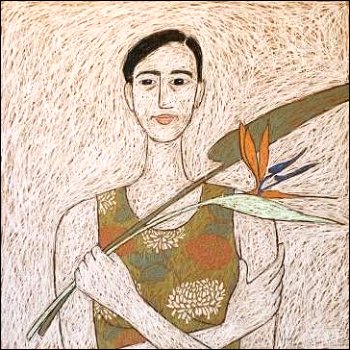
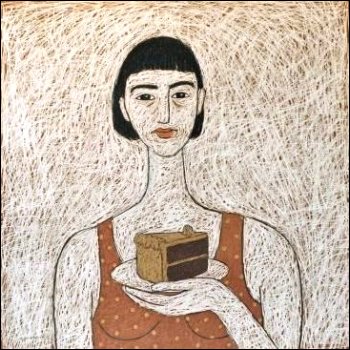
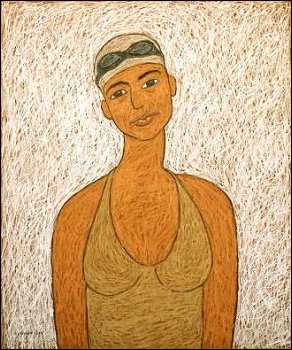
Wandering insatiably over the earth for years, greeting and taking leave of everything, I felt that my head was the globe and that a canary sat perched on the top of my mind, singing.
Nikos Kazantzakis -
Report to Greco

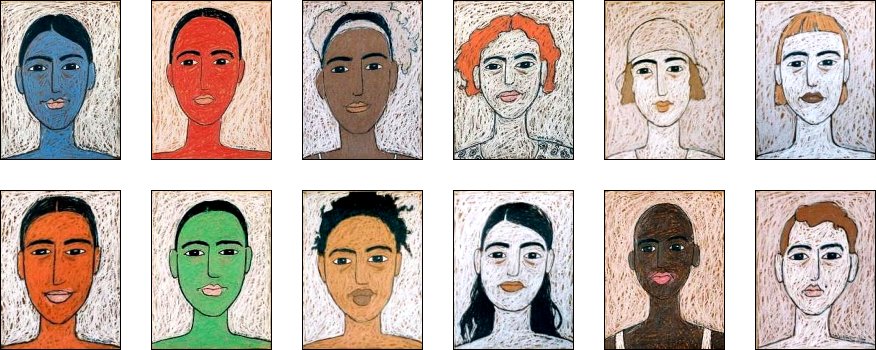

digitally created landscapes


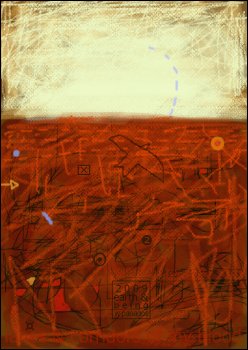
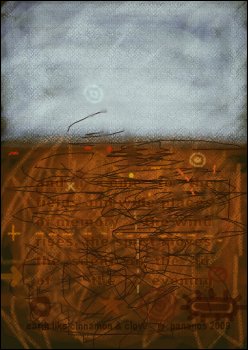
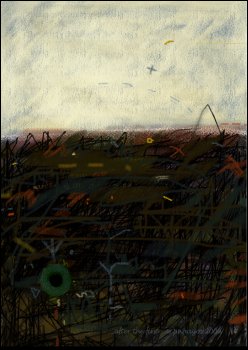
Psychologist say that the action of eating, of taking in food is simply enchanting - because it's the way we can take up the world inside ourselves, how what is around us becomes part of us. We eat the world.
Antjie Krog -
Country of my skull
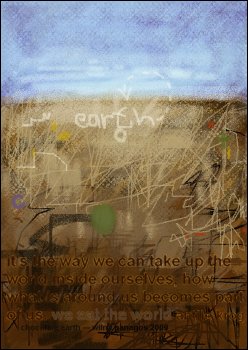
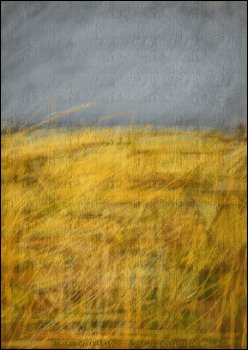
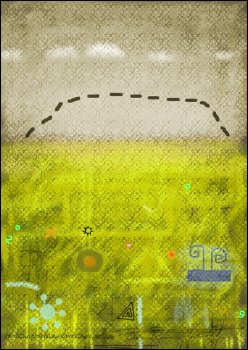
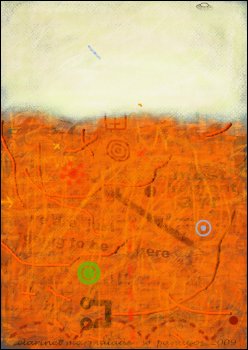
behold the wide plain where our persistent self pauses and awaits us
George Eliot - Middlemarch
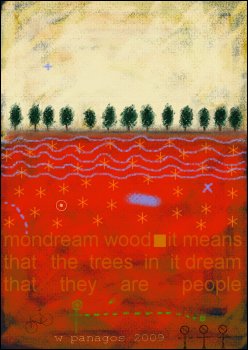
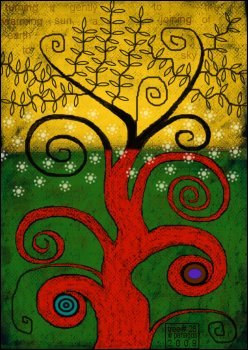
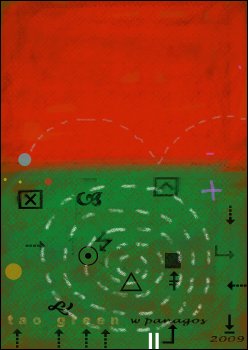
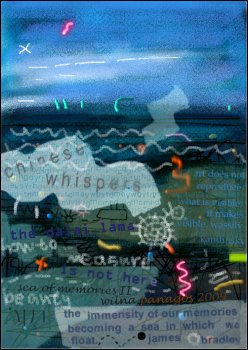
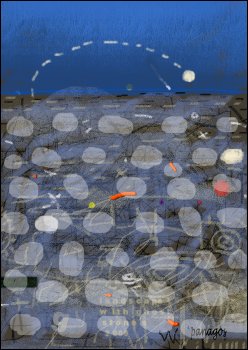
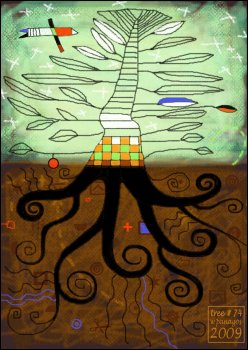
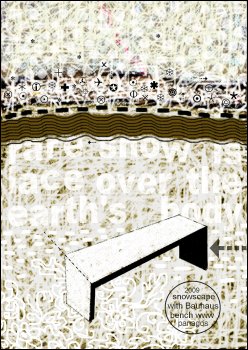
I went to the kitchen and opened the fridge. There were three cans of beer, most of a salami, a mouldering of old cheeses, half a tub of margarine, half a jar of marmelade, half a pint of milk and the head of Orpheus. "Loss !" it said. "That 's what she was to me, you know : she was the loss of her even when she was apparently the finding of her, the having of her. And I was the same to her, I was to her the loss of me. We were the two parts of a complementarity of loss, and that being so the loss was already an actuality in our finding of each other. From the moment that I first tasted the honey of Eurydice I tasted also the honey of the loss of her. What am I if not the quintessential, the brute artist? Is not all art a celebration of loss? From the very first moment that beauty appears to us it is passing, passing, not to be held."
Russell Hoban -
The Medusa Frequency
Japanese ideal of garden form is a space in which the art itself is so artless as to be totally unapparant. Japanese gardens are places where the human heart can come into direct, pure contact with the world of plants and flowers. One of their fundamental intentions is to inspire the emotion of rejoicing with these creations of nature and of figuratively blooming when they bloom.
Masao Hayakawa -
The Garden Art of Japan